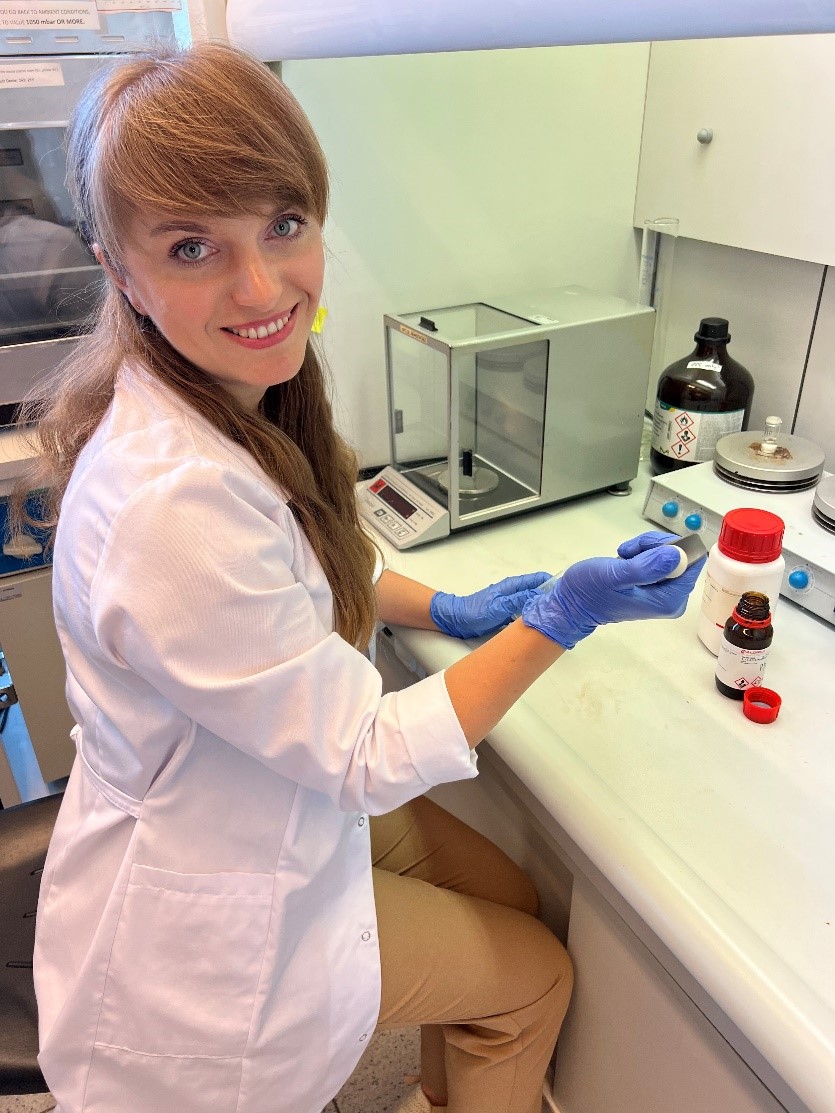Among the laureates of this year's edition of the SONATA 18 (National Science Centre) competition in the field of exact and technical sciences Olga Urbanek-Świderska PhD, a researcher working in the Laboratory of Polymers and Biomaterials IPPT PAN, was awarded. By the decision of the Director of the National Science Center, Olga Urbanek-Świderska Ph.D. received funding for the project entitled "Hybrid materials responsive to external stimuli for local drug delivery in endometriosis treatment - analysis of selected properties and effectiveness in vitro and in vivo conditions".
The project concerns the development of modern drug carriers for endometriosis treatment. Endometriosis is a disease in which cells of the endometrium, the tissue lining the uterus, form inflammatory foci outside the uterine cavity, e.g. on the ovaries, intestines, or even on the skin. As a result of endometriosis, women struggle with numerous pain symptoms and often lead an uneven fight with infertility. It is estimated that about 10% (190 million) of the world's population of women in reproductive age suffer from endometriosis.
Therefore, the project concerns the development of a new dual drug delivery system, which is based on two carriers: nanofibers and hydrogel. The purpose of the bioactive substances located in the system will be to limit the viability of endometriotic cells and to extinguish local inflammation accompanying this disease. The project was divided into five stages: development and optimization of the material (stage I), properties characterization (stages II and III), and in vitro (stage IV) and in vivo (stage V) experiments. Thanks to the use of superparamagnetic iron oxide nanoparticles (SPIONs), the possibility of controlled release of drugs through stimulation with an external magnetic field will be investigated. The project aims to extensively research drug release kinetics, mucoadhesion (mucosal interaction), degradation profile, and efficacy in in vitro and in vivo experiments. A comprehensive analysis of the structure and properties of the produced materials will also be carried out. In vitro tests will concern such parameters as the assessment of cells' life activity by detecting interleukin Il-10 or TGF-β, which stimulates the secretion of cytokines accompanying inflammation. In vivo tests will be carried out on a small animal model to verify the developed material's safety and effectiveness.
















